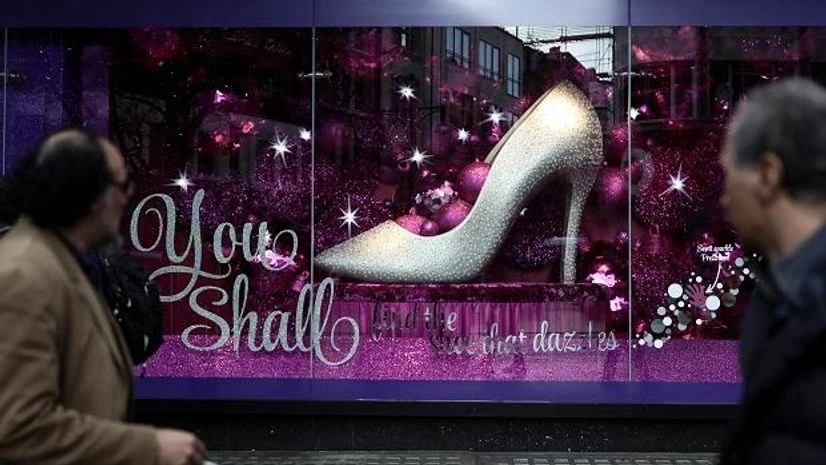British shop sales slid by much more than expected in December, capping off the weakest year for retail since 2013 as consumers squeezed by the Brexit hit to prices continued to keep a tight grip on spending.
Retail sales volumes dropped 1.5 percent from November, the Office for National Statistics (ONS) said, well below economists' forecasts of a monthly dip of 0.6 percent in a Reuters poll, and more than reversing a 1.0 percent rise in November.
That marked the biggest month-on-month fall since June 2016, the month Britons voted to leave the European Union, as well as the weakest December performance for seven years.
Britain's economy slowed in 2017 as higher inflation - caused by the post-referendum fall in the pound - hurt the spending power of consumers, although forecasts of a bigger hit to growth were confounded.
Friday's data pushed the pound down against the dollar and British government bond prices hit a session high.
Also Read
The Bank of England, which is considering when to follow up on November's first rate hike in a decade, expects the squeeze will ease in 2018 as inflation cools and wage growth ticks higher. Recent surveys of consumers suggest they do not share the central bank's optimism right now.
"The longer-term picture is one of slowing growth, with increased prices squeezing people's spending," ONS statistician Rhian Murphy said about Friday's data.
Many shoppers brought forward their Christmas spending into November to take advantage of Black Friday sales promotions, the ONS said.
Black Friday promotions have become commonplace in Britain only in the last few years, making it difficult for the ONS to adjust its data so figures for November and December can be compared easily from year to year.
But whatever distortions were caused by Black Friday sales, analysts were doubtful it did retailers any good.
"All of this discounting is likely to have decimated profit margins and retailers will be counting the cost," said Richard Lim, chief executive at consultancy Retail Economics.
On Friday, Britain's biggest floor coverings retailer Carpetright
Retailers have reported mixed fortunes over the Christmas period.
Last week Britain's biggest retailer Tesco
Looking at the fourth quarter as a whole, which smooths out monthly volatility in the data, the ONS said sales growth slowed to 0.4 percent, compared with 0.8 percent in the third quarter.
As a result, retail sales will contribute almost nothing to economic growth in the last three months of 2017.
Retail sales volumes for 2017 as a whole grew by 1.9 percent, a far cry from the 4.7 percent increase in 2016 and marking the weakest full-year performance since 2013.
In annual terms, retail sales volumes grew 1.4 percent in December, weaker than all forecasts in the Reuters poll. Sales in November grew 1.5 percent.
(Reporting by Andy Bruce; editing by Andrew Roche)

)
